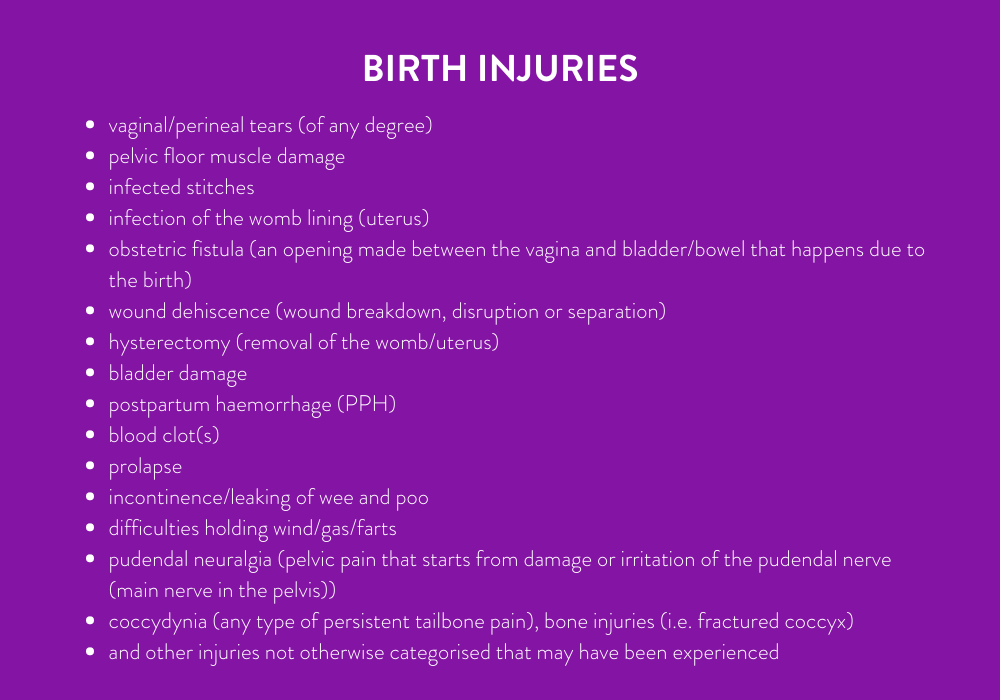Our organisation partner MASIC do brilliant work supporting birthing women and people who are affected by Obstetric Anal Sphincter Injuries (OASI). They challenge the stigma and they drive change by being advocates for those injured during birth.
Did you suffer an injury during birth?
MASIC have an extensive library of support resources including lots of information on birth injuries, after care and physiotherapy advice. Take a look through their collection of downloadable guides here. For Birth Trauma Awareness Week 2022 Make Birth Better hosted a Q&A with MASIC. You can read the article we published about it here. It has great guidance around a prolapse diagnosis, what surgery and treatment options you have when you have total perineal deficiency, and lots of information on OASI – such as how to prepare for another birth, treatment options, peer support groups and how to rebuild sexual connection.
Would you like to connect with others?
MASIC have an online support group on Facebook. In a number of areas they offer face-to-face support groups too. Take a look here. Would you like MASIC to support you and guide you to more helpful resources? Get in touch here.
You are not alone
On the MASIC website there are many stories from people like you. “Telling women’s stories is the most important thing we can do as a charity”, writes the MASIC team. “When women are brave enough to speak out, change happens.”
From our work at Make Birth Better we couldn’t agree more: we know support often means finally being able to understand better what happened, which is often through hearing or reading stories like yours and relating to these stories. Read Rhi’s story, Becka’s story, Geeta’s story and many more here. Know you’re not alone.






